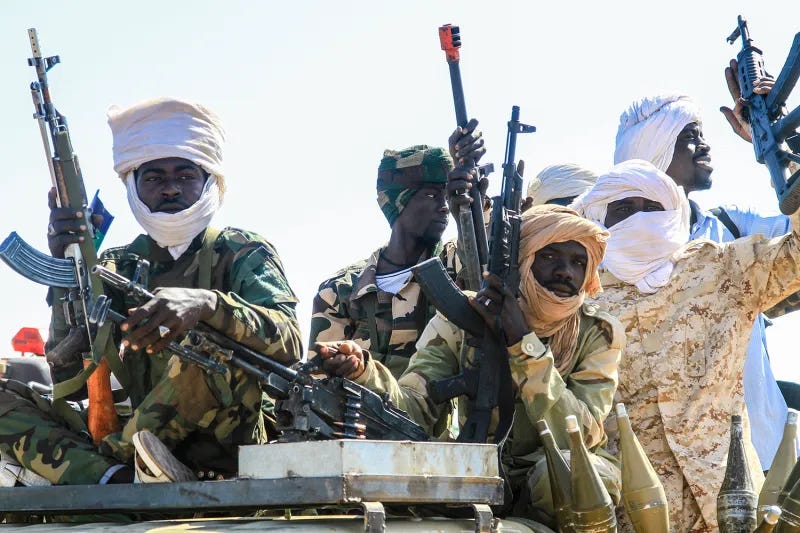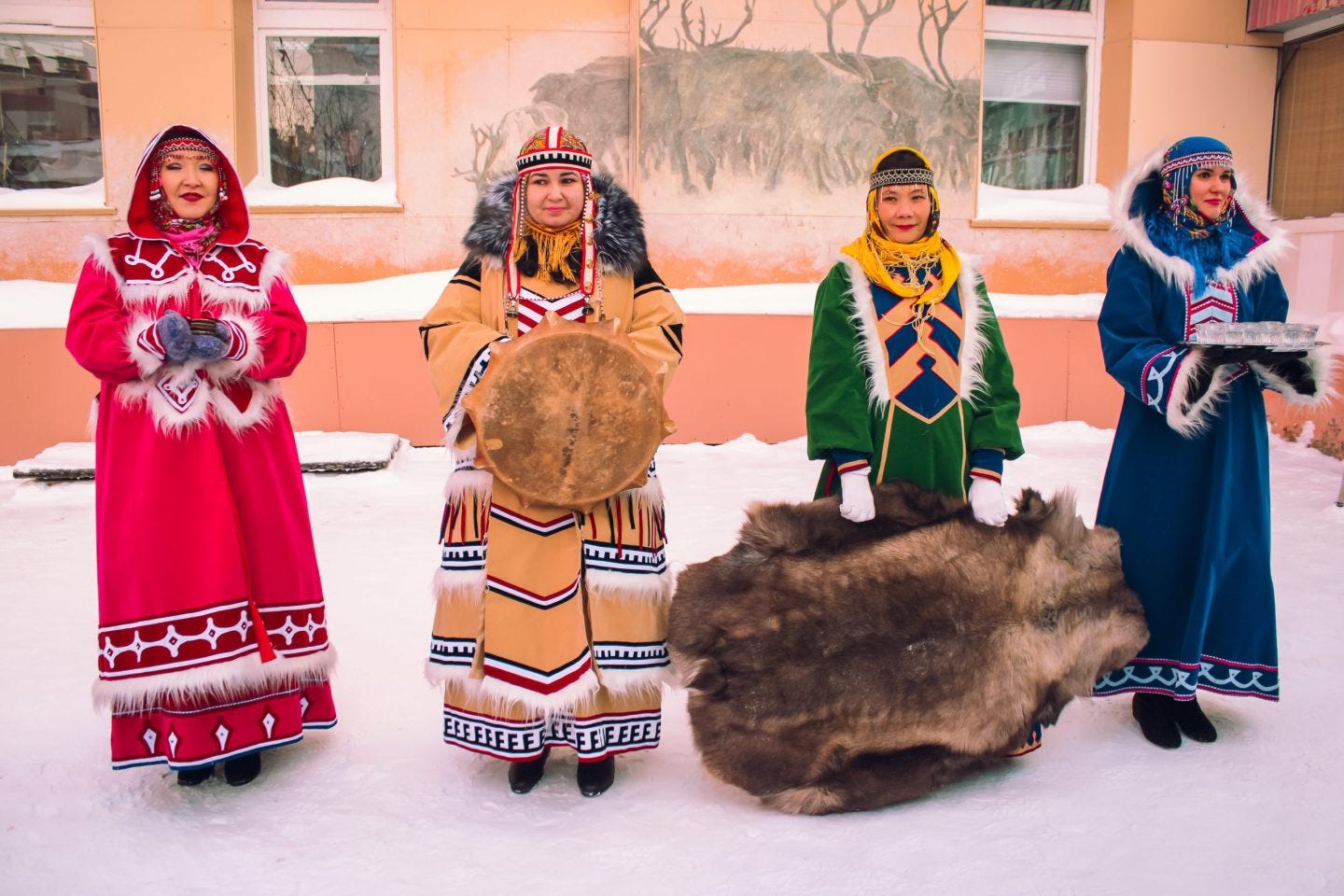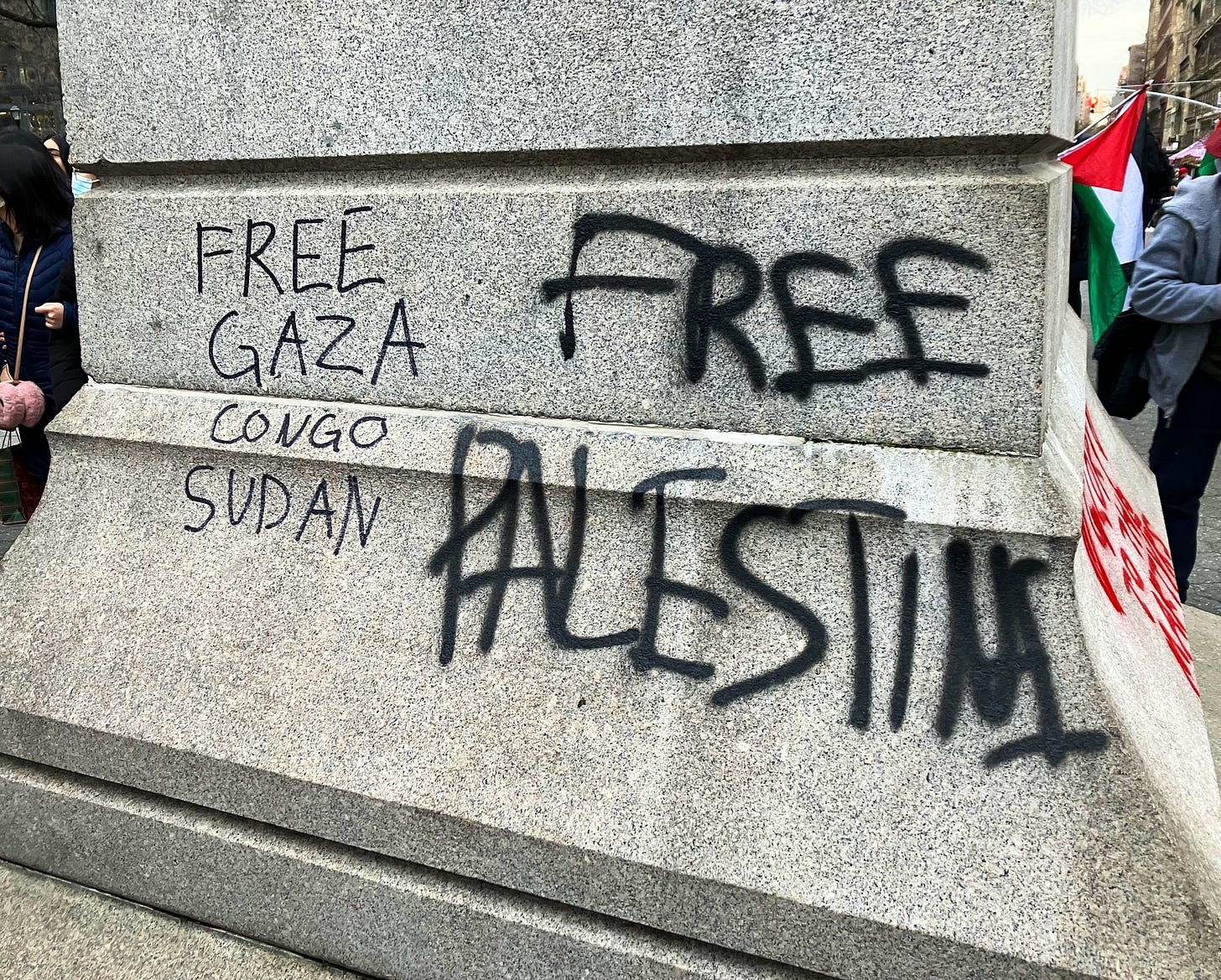Why Are Young People Posting "Free Sudan"?
What does the slogan mean? Why are young people chanting it? Most importantly...what's going on in Sudan?
Background on the conflict:
Sudan is home to around 48 million people. The nation has 500 various ethnic groups and a 97 percent Sunni Muslim majority. The overall ethnic majority is Sudanese Arab at about 70 percent. The once-British colony faces the classic postcolonial quandary of grappling with the result of European leaders drawing territorial lines only with their interests in mind. Most countries in the world have numerous diverse groups within their borders. Sudan, with a rich and lengthy history, has many tribal conflicts. Intranational disputes are a prominent part of their history. When European colonizers arrived on the continent, they did not take into consideration local complexities when designing borders.
After African nations regained their independence, this legacy of tribal conflicts carried on. The pernicious practice of divide and conquer was wielded by the colonizers. The interests and long-term welfare of the native inhabitants did not even cross their minds. There was not a single African attendee at the 1884 Berlin Conference. In the deliberation of who would get what land on the resource—culture-rich, potential-filled land—not one African voice spoke.
Similar to how the Tutsi ethnic group was favored by the Dutch in Rwanda, certain regional racial groups were favored by the English. The dominant oppressive Muslim Arab ruling class treated Black Animists and Christians like second-class citizens, reserving special privileges for themselves. This social outline can be partially blamed on the lingering legacy of European colonialism but also on the Islamic concept of jizya, a tax (usually mistakenly translated as a “head tax” or “poll tax”) paid by non-Muslim peoples to their Muslim rulers. These weighty troubles resulted in years of squabbling and battle, with South Sudan breaking off in 2011.
In 1987, Arab military leader Omar Al-Bashir usurped power in a coup. Since independence, Arab leaders have made it their priority to grow centralized cities like Khartoum. They source goods and resources from regions on the outskirts of the nation to fuel their interests in the cities. This leaves 11 million people in rural Darfur, mostly farmers, impoverished. In the Darfur region, the racial label one receives is based on their occupation. All inhabitants are racially Black and have an interwoven history and striking cultural likeness. However, “Black” is what farmers are referred to, while cattle herders are “Arab.” The climate change in the region forced the Arab herders to encroach upon the Black farmers' land. The two groups quarreled, but the government did nothing.
Rebel groups in the Darfur region are largely made up of tribal ethnic minorities. Al-Bashir sought the resources from those regions while not tending to the needs of the people. Due to a weak military, Al-Bashir funds local Arabs in those regions to advance his interests. These fighters are called the Janjaweed. The resulting oppression led to 300,000 deaths and an unknown number of sexual crimes and ethnic cleansing. In 2003, he was indicted by the ICJ but never faced any punishment.
From the center of the country, Al-Bashir converged the Janjaweed and created a single force called the Rapid Support Forces (RSF). Now more centralized and powerful than ever before, the Janjaweed continued to terrorize the region.
Hemedti is an Arab from Darfur who had mighty ambitions. The UAE and Hemedti mutually benefited from Sudan's richness in gold. The UAE was engaged in the Saudi-Emirati War against the Houthis. The UAE garnered a deal with Hemedti to export Sudanese soldiers to fight in Yemen. Many of these boys, coming from awfully impoverished backgrounds, were enticed by the 13,000 USD they would get in exchange for six months of fighting. A large chunk of the 40,000 RSF troops, with 20–40 percent of them being between 14 and 17 years old. The UAE continues to benefit from gold and child soldiers while Hemedti gets richer.
Local Sudanese “resistance committees” protested against the dictatorial rule of Al-Bashir, who had cut food supplies and neglected many regions of Sudan for quite a long time. Hemedti, who was known as Al-Bashir's protector, united with the Sudanese Armed Forces (SAF) and staged a coup in 2019, placing Al-Bashir under house arrest. This was a monumental moment in Sudan's history. A three-decade-long dictatorship was now replaced by the military. However, this was bad news. The people wanted their power. They fought for liberty, and the old system of oppression was replaced by a new one. Military leader Al-Burhan was then named Head of State and ruled with Hemedti, who was named his Deputy. Protests went on, and the people continued to demand their freedom. The system of suppression and corruption was not something the rulers would let go of.
On June 3, 2019, the RSF entered the protest encampment and fired upon the crowd, murdering civilians, raping women, and brutally tormenting peaceful democratic protesters. In the midst of the chaos, a new Prime Minister was appointed named Hamdok, but a democratic government was not on the table for the leaders as they were benefiting from the skewed socio-economic disarray. In October, Hemedti and Al-Burhan staged a coup and kicked out the Prime Minister. Al Burhan wanted the RSF to merge with the SAF. Hemedti wanted to wait ten years for the two to merge but either wanted to give up power.
Currently, the globally recognized government of Sudan is the SAF, and the government is technically a junta. The country has not secured democracy, and there is no official constitution. The de facto law is the Draft Constitutional Declaration from 2019. Weapons are supplied to the SAF from China, Turkey, Russia, Serbia, Yemen, and the UAE. It is important to note that the Darfur region has shamelessly been exporting child soldiers to fight in Yemen for the UAE. This was thoroughly reported on by the New York Times in 2018 and by Al Jazeera in 2019. However, this was never a focal point of the online progressive sphere. His recent passion for Sudan may be motivated by something other than a pure tenderness for the people of Sudan and their plight.
Gen Z view is skewed:
Social dynamics are defined by race in the United States. The national identity of the US is largely defined by two wars. The Revolution declares the founding of the US; however, growing up, to me the most monumental and significant war was the Civil War. Now I deem these two momentous wars to be equally important limbs of the same body. The progress that was made by America securing its independence added something to the air. The mission of abolition was the logical conclusion to the Revolution. The prominence of The Civil War in the American psyche proves just how crucial the notions of race, racism, and anti-racism are to the US. This legacy persists in the modern era.
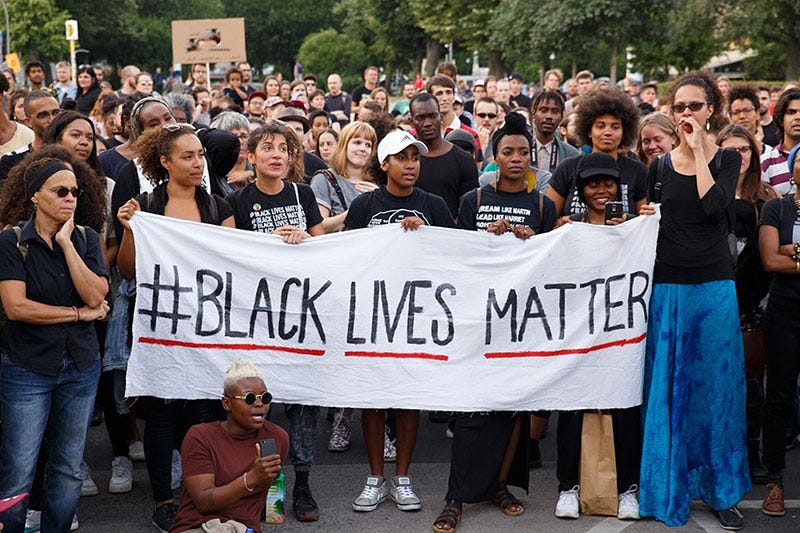
When looking outside of the insular localized view of racial dynamics, the ‘black and white’ arrangement is challenged. Racial dynamics in Japan are influenced by the country’s historical and cultural homogeneity. While ethnic Japanese make up the vast majority of the population, minority groups include Koreans, Chinese, Brazilians of Japanese descent, and Filipinos, among others. When examining the complexity of configurations of various identities, it is clear that race is a social construct. Society influences the manner in which race is interpreted, and the view of race then influences society reflexively.
In Russia and Yakutia, for instance, people who might be broadly classified as “Asian” or “Caucasian” by racial terms display a vast range of ethnicities with particular languages, cultures, and histories. This variety within perceived racial groups contests the notion of homogeneous racial categories.
The Balkans, with their history of Ottoman, Byzantine, and different Slavic influences, indicate substantial intermingling. This develops mixed identities that don't match American-centric racial classifications. While in Manchuria, the distinction between Han Chinese, Manchus, Mongols, and other ethnic groups is established more on cultural traditions and historical narratives than on physical distinctions. This shows how provincial definitions of identity vary and do not fit the way that many in the West see race. Race itself is a form of subjective collectivism, highlighting the social nature of these categories.
Americans, and the youth especially, have operated on seeing the world through an oversimplified racial framework. It’s crucial to approach the Sudanese crisis with a nuanced perspective that goes beyond the binary oppressor/oppressed ideology. This thinking is a sort of creed in the United States. The tremendous impact of the abolition and civil rights movements sang itself into the body of the nation. However, the success and triumphs of those movements should be respected and applied to the ever-growing international world. It should not be holding us back. The stubborn and myopic views of many young people obfuscate international and regional conflicts alike.
The activist mob’s propensity to lump assorted causes behind slogans like “Free Palestine” and “Free Sudan” exemplifies a disturbingly simplistic view of complex global issues. This shallow approach not only undermines the unique and intricate nature of each conflict but also reveals a glaring thoughtlessness among many self-identified “progressives.”
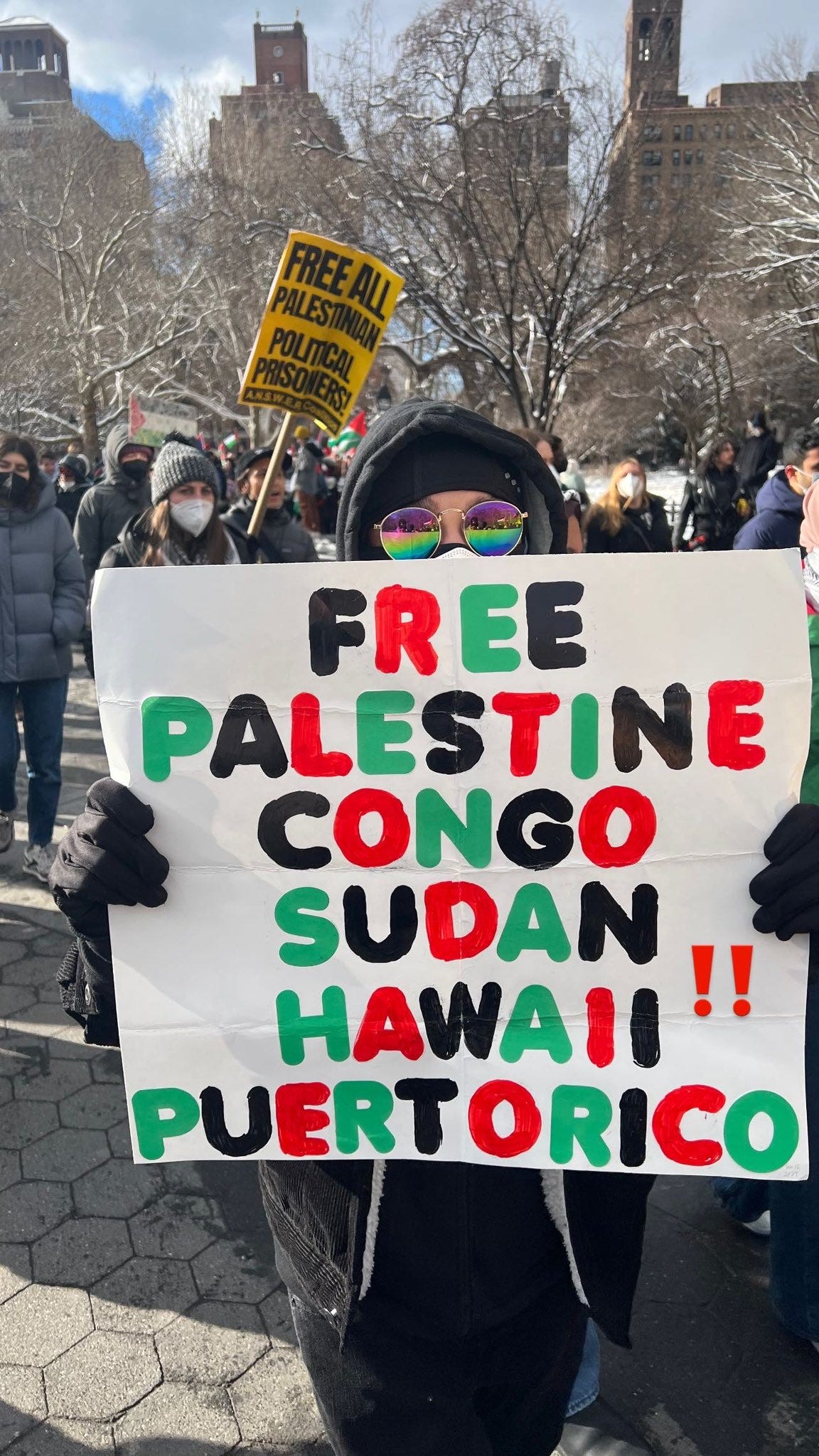
It's not so BLACK and WHITE:
In sum, the zealot activist trend to simplify convoluted international issues into reductive taglines like “Free Sudan” or “Free Palestine” proves that nuance is lacking in our society. This is especially troubling because we have more access to information than ever before. The sheer amount of knowledge and communication is not going down. As it increases, anyone with a screen in their hands will lose themselves if they don’t have strong values and intellectual clarity. While racial dynamics are undeniably powerful in American society, that is only because of the dynamics we have created within our national echo chamber. The world does stretch beyond the fifty states. Imposing this framework on global dissensions like those in Sudan obscures their complexities.
Proper advocacy demands people to be more knowledgeable and willing to engage with a new, broader mindset. Young people in the US don’t comprehend the specific histories, cultures, and political realities of various regions. Only by progressing beyond monolithic sentiments of oppression can we hope to grapple with the real needs and challenges of downtrodden nations and their hurting people.





